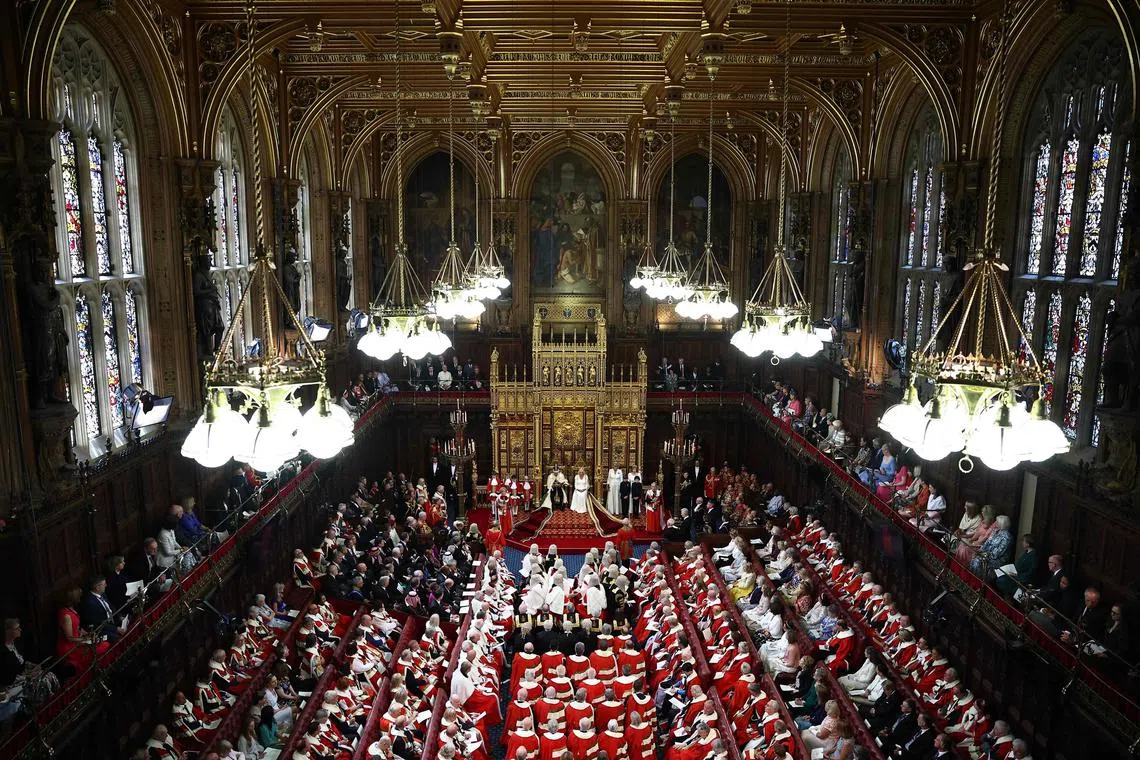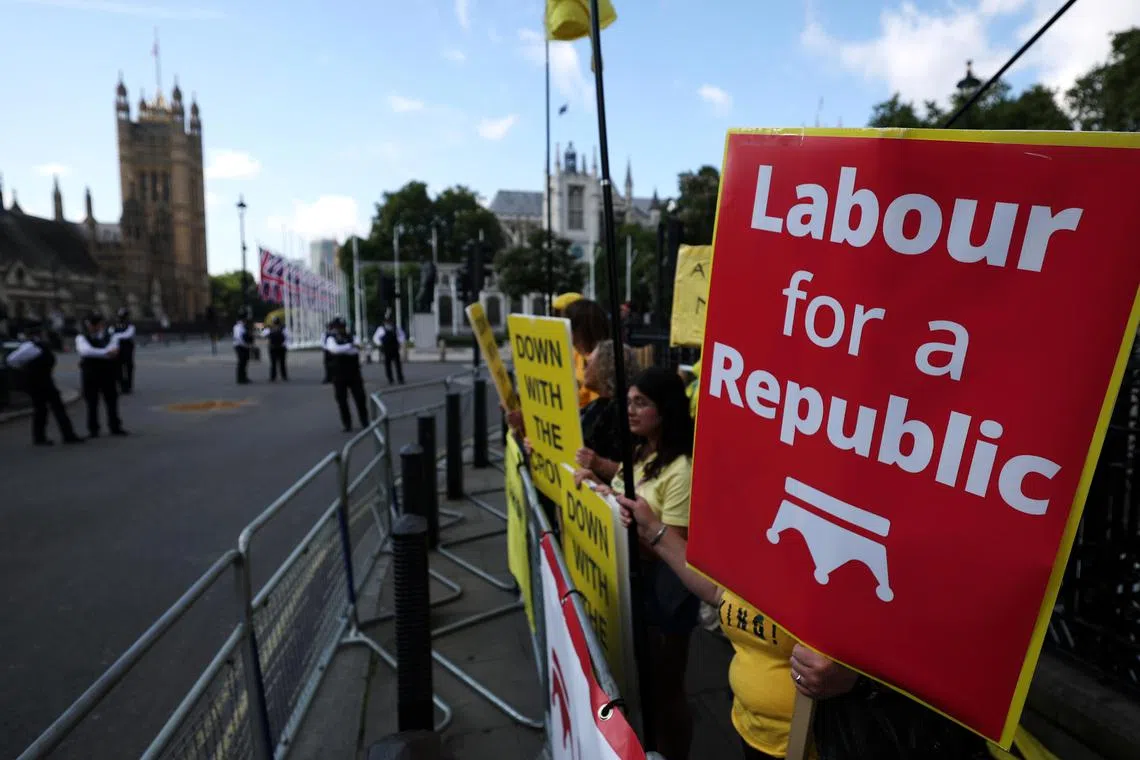Britain’s Labour government lays out programme in King’s address
Sign up now: Get ST's newsletters delivered to your inbox

Britain's King Charles III delivered Labour’s proposals from a golden throne in the House of Lords upper chamber.
PHOTO: AFP
Follow topic:
LONDON – King Charles III outlined Labour’s first programme for government in 15 years on July 17, with promises of economic stability, tougher action on irregular immigration and improving relations with Europe that have been soured by Brexit.
“We will unlock growth and take the brakes off Britain,” Prime Minister Keir Starmer said in introductory remarks to the King’s Speech, a centuries-old tradition full of pomp and ceremony that details the laws the government proposes to make over the next 12 months.
Despite its name, the address, which marks the official start of the new parliamentary session, is not written by the monarch as head of state but by the government.
It was centre-left Labour’s first such speech since it was last in power in 2010.
Labour returned to government following a landslide win against the Tories
Wearing the diamond-studded Imperial State Crown, a Royal Navy outfit and a long robe, King Charles delivered Labour’s proposals from a golden throne in the House of Lords upper chamber after travelling from Buckingham Palace in a carriage procession.
The speech included more than 35 Bills, encompassing measures to enforce public spending rules and an independent assessment of future budgets to prevent a repeat of former prime minister Liz Truss’ disastrous 2022 mini-budget that tanked the economy
The legislation fleshed out several announcements already made, such as the launching of a wealth fund to draw investment into Britain and of a publicly owned body tasked with boosting clean energy by 2030.
Labour also announced an acceleration of house building and plans to re-nationalise Britain’s much-maligned rail services.
There was also detail of a new border security command with beefed-up “counter-terror powers” to curb “immigration crime” – Mr Starmer’s pledge to “smash the gangs” behind small boats laden with migrants crossing the Channel from northern France.
A Bill to boost workers’ rights, including a ban on zero-hour contracts, and strengthened protections for renters were also included, as were plans to reform the unelected House of Lords by scrapping the right of those with hereditary titles to sit there.
Former prime minister Rishi Sunak’s proposal to phase out smoking
Also included was a pledge to repeal a controversial act that granted conditional immunity to perpetrators of crimes in Northern Ireland during the “Troubles” era of sectarian violence.
“This is a hungry party,” former Labour minister Tony McNulty said before the speech.
“They are chomping at the bit to show that they can get back to being what they see as the natural party of government.”

Protesters taking part in an anti-monarchy protest ahead of the state opening of Parliament in London on July 17.
PHOTO: EPA-EFE
The day’s proceedings started when royal bodyguards ritually searched the basement of the Palace of Westminster for explosives – a legacy of the failed attempt by Catholics to blow up Parliament in 1605.
The King travelled to Buckingham Palace, escorted by mounted cavalry, en route to the Houses of Parliament.
A smattering of anti-monarchy protesters chanted “Not my king!” outside Parliament, while the Metropolitan Police said 10 members of activist group Youth Demand were arrested on suspicion of conspiracy to cause public nuisance.
Tradition at the ceremony dictates that an MP is ceremonially held “hostage” in the palace to ensure the King’s safe return.
A parliamentary official known as Black Rod had the door of the lower chamber House of Commons slammed in his face, a tradition that symbolises Parliament’s independence from the monarchy.
MPs then followed Black Rod to the upper chamber, where King Charles, as head of state, gave the speech to assembled lords and ladies in red and ermine robes, plus invited members of the elected Commons.
In keeping with the convention that the monarch is above politics, keen environmentalist King Charles remained expressionless throughout, as he did during the last address in November when Mr Sunak’s government announced new oil and gas licences.
“That’s the job,” said Mr McNulty, a British politics lecturer at Queen Mary University of London, noting however: “There’s probably much in this King’s Speech that he will favour rather than the other one he had to read out.” AFP

